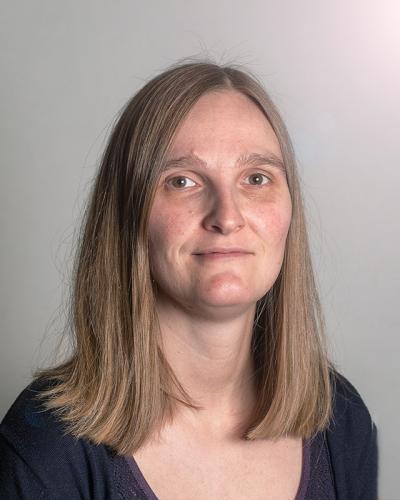I joined EPCC in 2006 after studies in Medical Informatics (University of Heidelberg) and Computing (Napier University), and completing a PhD in Music & Artificial Intelligence at the University of Edinburgh. My main research interests are in the fields of energy efficiency in HPC, software performance analysis and optimisation, and novel hardware.
Prof Michèle Weiland
Met Office Joint Chair

I currently supervise 3 PhD students working on sparse matrix storage formats, high productivity programming languages on Arm CPUs, and performance optimisation of mesh refinement tools.
My current work focuses on the following projects:
- The ASiMoV Strategic Prosperity Partnership with Rolls-Royce (Technical Project Manager)
- ARCHER2 eCSE project Developing in-situ analysis capabilities for pre-Exascale simulations with Xcompact3D (Co-I)
- ELEMENT, the Exascale Mesh Network (Co-I)
- SAGE2, a H2020 project on object storage technologies (Edinburgh PI)
- HPC-WE, an EU-Brazil project on applying HPC to Wind Energy simlaltions (Edinburgh PI)
I have been involved in the following projects in the past:
- Adept - Addressing Energy in Parallel Technologies (Project Coordinator): FP7-funded project investigating the power and energy consumption of parallel software in both HPC and Embedded domains
- NEXTGenIO - Next Generation I/O for Exascale (Project Manager): Horizon 2020 funded project developing new hardware and software solutions for I/O at the Exascale;
- ExaFLOW - Enabling Exascale Fluid Dynamics Simulations (PI): Horizon 2020 funded project working towards algorithmic improvements to enable fluid dynamics simulations at the Exascale;
- MONC - Met Office NERC Cloud model (PI): project working on the development of a new community cloud modelling application, with the aim of dramatically improving both resolution and performance;
- Intel Parallel Computing Centre (Co-I): working on porting grand challenge applications to Xeon Phi and optimising their performance;
- A new simulation and optimisation platform for marine technology (Co-I): EPSRC-funded Software for the Future IIproject that focusses on re-engineering a marine scale modelling package to provide performance-portability,future-proofing and substantially increased capabilities;
- Scalable automated parallel PDE-constrained optimisation for dolfin-adjoint (Co-I): ARCHER eCSE project working on improving the scaling and parallel performance of the dolfin-adjoint software;
- Enabling large-scale microphysics and optimising solver performance in MONC (Co-I): ARCHER eCSE project working on improving MONC's performance on the UK's national supercomputer.